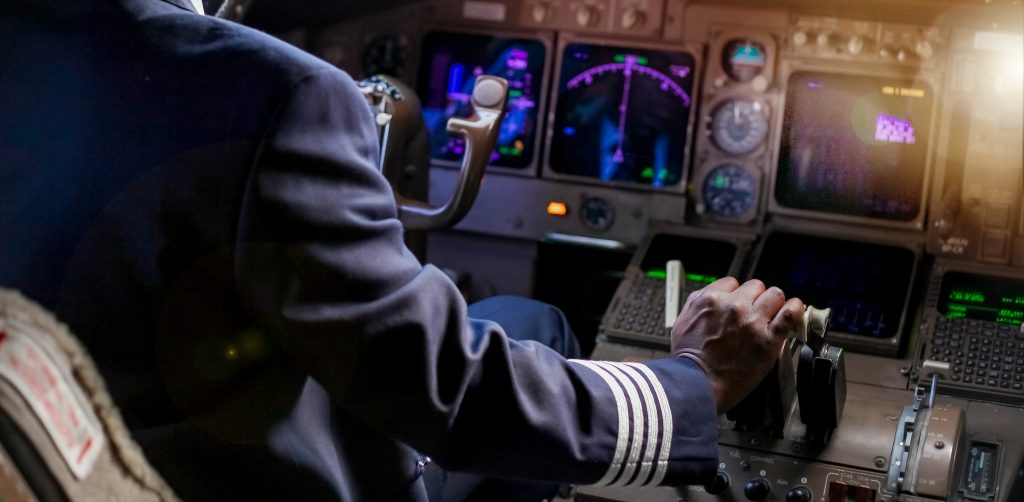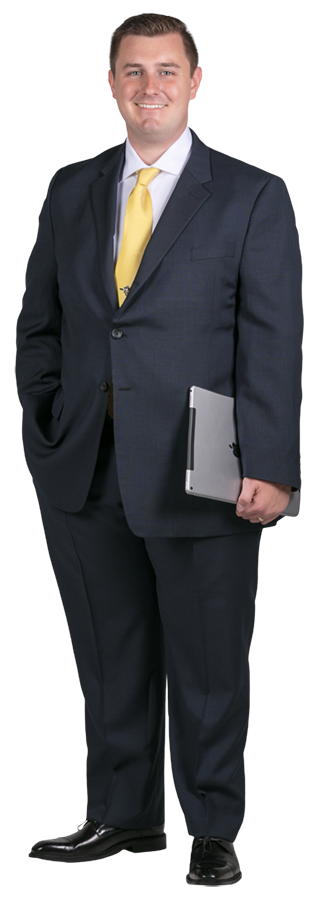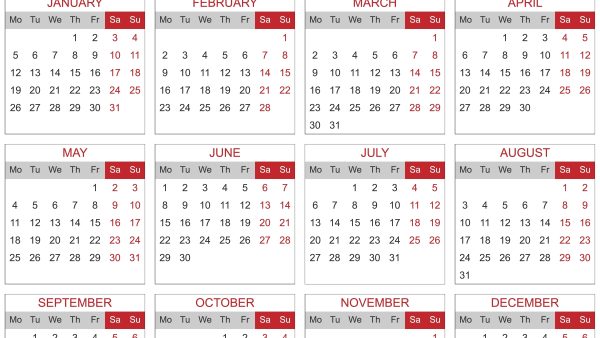Looking for Expert-Level VA Claim Answers?📱Call Us Now! 737-295-2226
You’re here because you want to know if/how VA disability and FAA medical can potentially affect your career and flying status as an airline pilot.
Let’s first answer the nagging question: “Can I be a pilot with VA disability?”
The short answer is “yes,” you can be a pilot while receiving VA disability benefits.
Also, your VA combined rating does not affect your flying status.
For example, you can be a commercial airline pilot with a 100 percent VA disability rating.
However, there are some nuances that disabled veteran pilots need to be aware, specifically, around FAA disqualifying medical conditions.
Pro Tip: In many cases if the “disqualifying” medical condition is adequately controlled, the FAA will issue a medical certification contingent on periodic reports.
- Where is the Current List of FAA Medical Exam Disqualifying Conditions?
- Do I Have to Report VA Disability to the FAA?
- VA Disability and FAA Medical: Can I Still Be a Pilot While Receiving Service Connected VA Disability Benefits?
- Can I Be a Pilot With VA Service Connected PTSD?
- Can I Be a Commercial Airline Pilot With Mental Health Issues?
- FAA VA Disability UPDATE: Why is the FAA Investigating Veteran Pilots Who Receive VA Disability Benefits?
- 2023 Update on the FAA’s Handling of Unreported VA Disability Benefits
- How is the FAA Handling VA Disability Cases Now?
- What is a Letter of Correction Versus Order of Revocation?
- Why Did Some Veteran Pilots Get a Letter of Correction and Some Didn’t?
- What Should I Do If I Receive a Letter of Correction from the FAA?
- What Should I Do If I Have Not Received Correspondence From the FAA?
- Conclusion & Wrap-Up
- About the Authors
Where is the Current List of FAA Medical Exam Disqualifying Conditions?

The standards for FAA medical certification are contained in the Federal Aviation Regulations (14 CFR Part 67).
Pilots who have a history of certain medical conditions described in these standards are mandatorily disqualified from flying.
Important: If the “disqualifying” medical condition is adequately controlled (e.g., with medications), the FAA will issue a medical certification contingent on periodic reports, and you can still fly.
These 15 medical conditions include:
- Angina pectoris
- Bipolar disorder
- Cardiac valve replacement
- Coronary heart disease that has been treated or, if untreated, that has been symptomatic or clinically significant
- Diabetes mellitus requiring hypoglycemic medications
- Disturbance of consciousness without satisfactory explanation of cause
- Epilepsy
- Heart replacement
- Myocardial infarction
- Permanent cardiac pacemaker
- Personality disorder that is severe enough to have repeatedly manifested itself by overt acts
- Psychosis
- Substance abuse (e.g., alcoholism & drug addiction)
- Substance dependence
- Transient loss of control of nervous system function(s) without satisfactory explanation of cause.
Other medical conditions may be temporarily disqualifying, such as acute infections, anemia, and ulcers.
Pilots who do not meet medical standards may still be qualified under special issuance provisions or the exemption process.
This may require that either additional medical information be provided, or practical flight tests be conducted.
Click HERE to read the current 2023 Guide for Aviation Medical Examiners (AME).
Do I Have to Report VA Disability to the FAA?
Yes, you do need to report VA disability benefits on question 18y of the Form 8500-8.
Reporting your VA disability benefits on your FAA medical application does not have to result in the denial of your application.
Many VA disability conditions for which veterans receive compensation are not conditions which are aeromedically significant.
Some conditions, such as post-traumatic stress disorder PTSD, traumatic brain injury (“TBI”), and obstructive sleep apnea (“OSA”), may warrant further evaluation by the FAA, but even those conditions can be overcome to establish an airman’s eligibility for FAA medical certification.
Pro Tip: If you have failed to report your VA disability compensation benefits on your FAA medical application, you need to act immediately. In the event the FAA or the VA discovers your failure to report your VA benefits, as required, the FAA could take action to revoke your airman certificate(s), as well as your medical certificate.
VA Disability and FAA Medical: Can I Still Be a Pilot While Receiving Service Connected VA Disability Benefits?
Yes, a disabled veteran can fly while receiving service connected VA disability benefits.
In addition, your VA disability rating does not affect your flying status.
For instance, you can be a commercial pilot with a 100 percent VA disability rating.
However, there are some nuances that disabled veteran pilots need to be aware, specifically, around FAA disqualifying medical conditions.
Remember that in many cases if the “disqualifying” medical condition is adequately controlled you can still fly.
Can I Be a Pilot With VA Service Connected PTSD?
Yes, you can still fly with VA service connected Post Traumatic Stress Disorder (PTSD).
The FAA uses an AME PTSD Decision Tool for pilots with a history of PTSD.
Click HERE to read the guidelines for flying with service connected PTSD from the VA.
Can I Be a Commercial Airline Pilot With Mental Health Issues?
Yes, you can be a commercial airline pilot with mental health issues.
In fact, the FAA encourages pilots to seek help if they have a mental health condition since most mental health conditions, if treated, do not disqualify a pilot from flying.
However, certain medical conditions such as a psychosis, bipolar disorder and some types of personality disorder automatically disqualify a pilot from obtaining an FAA medical certificate.
Over the last few years, the FAA has invested resources to end the stigma around mental health in the aviation community so pilots can/will seek mental health treatment without fear of being grounded.
FAA VA Disability UPDATE: Why is the FAA Investigating Veteran Pilots Who Receive VA Disability Benefits?
The following is a special report from Anthony Inson, “The Pilot Lawyer.”
*****
This is an update to a previous article I wrote entitled Airmen Receiving VA Disability Benefits – Legal & Medical Services (PPS) | AOPA, the FAA initiated a “special project,” whereupon the agency began a cooperative effort with the VA to cross reference records for those airmen who were receiving VA disability with their responses on their application(s) for airman medical certification, Form 8500-8 (“medical application”). The goal of which was to discover if airmen receiving VA disability benefits had reported receiving such benefits on their medical application(s). This effort resulted in the FAA sending out Letters of Investigation (“LOI”) to airmen all over the country for allegedly failing to report VA disability benefits. Since AOPA kindly published this article in September of 2022, the FAA seems to have modified their handling of these cases, slightly. The FAA continues to investigate airmen under the VA disability “special project.” In a concerning twist, however, these cases are being handled in a “one-potato-two-potato” fashion or better said in legalese: the handling of these cases has been arbitrary and capricious. The FAA’s inconsistent handling of VA disability/falsification cases, unfortunately, keeps airmen and their certificates in the crosshairs.
This article will provide the following: 1) an update on how the FAA is handling cases where an airman has been alleged to not have appropriately reported his or her VA disability benefits on a medical application(s); 2) an overview of the differences between a Letter of Correction and an Order of Revocation; 3) a discussion on the legal concerns relating to the FAA’s choice of who will and who will not receive a Letter of Correction; 4) a discussion on what you should do if you have received a Letter of Correction from the FAA; and 5) reiterate what you should do immediately if you have not yet received correspondence from the FAA, but have not reported your receipt of VA disability benefits on your medical application(s).
2023 Update on the FAA’s Handling of Unreported VA Disability Benefits
At the time of my September 2022 article on this issue, the FAA’s initial handling of these types of cases appeared to be relatively simple. [1] Essentially, at that time, the FAA would discover that an airman was receiving VA disability benefits and that the airman’s receipt of those benefits had not been identified on question 18y on the airman’s medical application(s). [2] Upon making this discovery, the FAA would issue a Letter of Investigation to the airman. In the May 2022 to September 2022 timeframe, our firm would receive on average two to three calls per business day from an airman who had received a Letter of Investigation relative to their incorrect reporting of VA disability benefits on his or her medical application(s). Many of these cases resulted in the issuance of a Letter of Correction.
In approximately November of 2022, it was the perception at our firm that airmen who had received a Letter of Investigation because of the FAA’s “special project” were having their cases disposed via Letters of Correction, nearly in droves. There turned out to be a lot of airmen who had allegedly not reported their VA disability benefits on their medical application(s). Perhaps the FAA realized that they had bitten off more than they could chew in pursuing revocation of all certificates against airmen who had not appropriately reported their VA disability benefits. No matter the cause, there appeared to be a shift from airmen exclusively receiving a Letter of Investigation as the FAA’s initial contact with the airman, to situations where the initial contact the airman received from the FAA was a Letter of Correction. Essentially, in these cases, the FAA didn’t even bother asking the airman about the discrepancy in his or her non-reporting of VA disability benefits via Letter of Investigation, but right out of the chute, decided to give the airman an opportunity to correct the allegedly incorrect medical application(s).
How is the FAA Handling VA Disability Cases Now?
As of October 2023, unfortunately, the FAA’s disposition of these cases has become erratic. In practice, where two airmen may have the same or substantially similar VA disability benefits and ratings, one airman may receive a Letter of Correction as an initial contact, whereas the other may receive a Letter of Investigation. More tragically, in recent days, we have seen more cases be referred for legal enforcement generally seeking revocation of all certificates, whereas similar or like cases may been disposed via Letter of Correction. Curiously, and concerningly, we have also seen Letters of Correction be issued and then later rescinded, without explanation or legitimate rationale.
The relevant update is that the Letter of Correction has become a more prevalent disposition for many airmen caught up in the FAA’s “special project.” This is good news for many airmen since my last article. Nevertheless, the Letter of Correction appears to be a fickle instrument of the FAA and airmen should keep their guard for the Office of Aerospace Medicine’s discretionary referral for legal enforcement or even rescission of the Letter of Correction.
What is a Letter of Correction Versus Order of Revocation?
What is a Letter of Correction and how is it different from an Order of Revocation? In short, a Letter of Correction is an opportunity for the airman to correct his or her medical application(s) to accurately reflect his or her receipt of VA disability benefits and any underlying medical condition(s). In making such a correction, however, the FAA will also ask that the airman provide relevant documentation to establish his or her eligibility to hold an airman medical certificate. For example, if an airman is receiving a 50% disability benefit rating from the VA for Posttraumatic Stress Disorder, a Letter of Correction may ask that an airman correct his or her application(s) and to also provide relevant diagnostic and treatment records, as well as a current evaluation report from a physician. The FAA would then assess that documentation to establish whether the airman meets criteria to hold an airman medical certificate, and then, upon review, issue either a Letter of Eligibility, a special issuance authorization, or perhaps, revoke the airman’s medical certificate due to medical insufficiency.
A Letter of Correction does not constitute a finding of violation and does not independently act as an action against your airman certificate. A Letter of Correction will not be reported to employers under the Pilot Records Improvement Act (“PRIA”) or via the Pilot Records Database (“PRD”). A Letter of Correction can be discovered by a third party, however, via a request under the Freedom of Information Act, for a period of two years from issuance.
Issuing an Order of Revocation is a more drastic approach the FAA can take in these cases. When the FAA issues an Order of Revocation, the FAA generally revokes the airman’s medical certificate and allairman certificates (whether the airman holds a Private Pilot certificate or ATP certificate) for alleged falsification in violation of 14 C.F.R. §67.403. These actions are discussed in more length in my September 2022 article, as well as in many of the other fine publications offered by AOPA.
Ultimately, as should be relatively obvious, a Letter of Correction is the desired outcome in these cases.
Why Did Some Veteran Pilots Get a Letter of Correction and Some Didn’t?
In my opinion, if one airman subject to the FAA’s “special project” gets a Letter of Correction, then every airman subject to the FAA’s “special project” should get a Letter of Correction. Are there cases worse than others? Yes. Are there cases where some airmen have a more significant medical history than others? Yes. Have there been cases where airmen with a rating for the same percentage and for the same condition have received different outcomes? Yes. Why? Why would the FAA allow for one airman, receiving a 100% rating disability benefit receive a Letter of Correction, but another with the same rating and condition(s) go to an Emergency Order of Revocation? These are unanswered questions.
Enforcement actions against airmen who have been alleged to falsify a medical application have been going on for many years before the FAA initiated its current “special project.” In litigation before the National Transportation Safety Board (“NTSB”), the FAA’s previous position has always been crystal clear: falsification of one application for airman medical certification warrants revocation of all certificates. See Administrator v. Kennedy, NTSB Order EA-5928 (2022) (noting that revocation is the appropriate sanction even for a single instance of intentional falsification). The point of bringing this up is that the FAA would be on shaky ground if they justified issuance of a Letter of Correction based on how many applications are perceived to have been falsified.
Perhaps the FAA is trying to justify giving an airman a Letter of Correction based on the airman’s condition(s) for which the airman is receiving benefits and the percentage at which the airman is receiving benefits? This would not appear to be the case, as our firm has seen situations where airmen receiving substantially similar benefits for similar or same conditions receive different dispositions. Even still, this would be inconsistent with NTSB case law, which does not consider the status of the condition(s) which were not reported, but rather only that the condition(s) was not reported. The severity of the medical condition would only be a question as to eligibility to hold an airman medical certificate.
The FAA does not appear to have a legitimate, focused rationale for who receives a Letter of Correction and who doesn’t. This is a problem for airmen, but perhaps, also a problem for the FAA. As the cases which go to an Order of Revocation are litigated at the NTSB, a primary focus should be on why the airman was not issued a Letter of Correction – what makes this airman any different from the many airmen who received a Letter of Correction? I propose that there is no difference between these cases and the FAA’s choice of revocation as a sanction is arbitrary and capricious.
What Should I Do If I Receive a Letter of Correction from the FAA?
If you receive a Letter of Correction, you need to consult with an aviation attorney. Why do you need an attorney to assist in what appears to be a medical certification question? The FAA has proven themselves to be indecisive when it comes to issuing and maintaining the Letter of Correction. It is critical that your response as to how you correct your previous application(s), as well as how you present your eligibility for continued airman medical certification, is handled delicately. An experienced aviation attorney should ensure that your response(s) to the FAA is complete, accurate, and constructed with an eye toward working with the FAA to resolve your case without the specter of enforcement.
Our firm has also seen airmen experience consequences from an aeromedical perspective for not appropriately reporting their medical history on a medical application(s). In some cases where the airman is not pursued via legal enforcement, the FAA has argued that the airman’s history of incorrect reporting on his or her medical application(s) rises to the level of an “overt act.” We have seen cases where the FAA then finds that the airman’s “overt acts” were possibly the manifestation of a severe “personality disorder” pursuant to 14 C.F.R. §§67.107(a)(1), 67.207(a)(1), and/or 67.307(a)(1). In these cases, the FAA could potentially find that the airman is not eligible to hold a medical certificate, and/or require extensive psychiatric and neuropsychological testing. Of course, there is much to be argued in these situations, as to whether the airman legitimately has an underlying “personality disorder,” whether the airman legitimately committed an “overt act,” and if so, whether that “overt act” was a manifestation of the alleged personality disorder, let alone a personality disorder which is “severe,” as is required by the regulation.
As you can see from the example, above, your eligibility to hold an airman medical certificate can also benefit from review by an experienced aviation attorney. In our opinion, the medical certification process is more so a legal process than a medical process. Ensuring that your doctor is developing the proper documentation regarding your medical conditions, as needed, can be a difficult task. To that end, everything that is submitted to the FAA (i.e., records, statements, evaluations, etc.) goes into your airman medical file. This file is what the FAA then utilizes to evaluate whether you are eligible to hold a medical certificate. Moreover, if your medical certificate is revoked for a medical insufficiency, and you wish to appeal that denial, your airman medical file becomes “Exhibit A” before the NTSB or upon reconsideration by the Federal Air Surgeon. So, an experienced aviation attorney can evaluate your records, prepare a plan for best presentation of your case to the FAA, and best argue your medical eligibility to the Federal Air Surgeon, with an eye for potential future appeal.
What Should I Do If I Have Not Received Correspondence From the FAA?
This advice was published in my September 2022 article; however, it is worth repeating: if you have NOT received correspondence from the FAA regarding your alleged failure to report receipt of VA disability benefits on your medical application, contact an aviation attorney or AOPA’s Legal Services Plan immediately. It is of the utmost importance that, if you have not reported your VA disability benefits on your FAA medical application, as required, you take immediate action to correct any potential errors. I discuss this process in depth in my February 1, 2021, article for AOPA entitled Correcting Your Medical Application and Avoiding Certificate Revocation. There may be opportunities to avoid revocation of your certificates by amending your previous medical application(s) before receiving a LOI from the FAA. Do not avoid taking proactive steps in this matter, as the FAA will catch up with you.
Conclusion & Wrap-Up
The good news is that things are looking better for airmen caught up in the FAA’s VA disability “special project” with the FAA’s more prevalent use of Letters of Correction. For those who have received a Letter of Correction, the good news is that you are likely to avoid revocation of all certificates and the focus should be your continued eligibility to hold an airman medical certificate. If you are one of the unfortunate airmen who have received an Order of Revocation, keep in mind that the arbitrary and capriciousness of the FAA’s decision to not give you a Letter of Correction may be a viable defense in your case. If you need to “amend” your previous application(s), do so immediately, as the FAA continues to actively pursue airmen under the “special project.”
[1] This article does not express or identify the FAA’s specific processes, but rather, what has been experienced by our firm in practice, having handled many of these cases. [2] Question 18y. on FAA Form 8500-8, or application for airman medical certification, asks if an airman in his or her lifetime has ever received medical disability benefits. Contrary to the understanding of some airmen, the FAA is asking for VA disability benefits to be identified in response to this question.
About the Authors
Anthony Ison

Anthony G. Ison is an aviation attorney born and raised in Lakeland, Florida, which consequently is home to the annual Sun ‘n Fun International Fly-in and Expo. Anthony has been a licensed airman since he was 17 years old and has recently been working on obtaining his rotorcraft endorsement.
Anthony is the founding member of The Ison Law Firm ThePilotLawyer.com, where he exclusively represents pilots, mechanics, aviation businesses, air traffic controllers, airports, passengers, drone operators and the like before the Federal Aviation Administration, the National Transportation Safety Board, and in a multitude of other settings. A broad portion of Anthony’s practice is devoted to assisting airmen with establishing eligibility for airman medical certification. The firm represents airmen in FAA and NTSB matters nationwide.
He is licensed by and a member of the bar associations of both Florida and Kentucky. Additionally, he is an AOPA Legal Services Panel Attorney. Anthony holds an “of counsel” position with two other aviation law firms, where he contributes his experience and knowledge to fellow aviation attorneys and their clients. Anthony has also contributed to numerous research studies regarding commercial drone laws and aviation law. Popularly known as “The Pilot Lawyer” due to the fact that he is both a pilot and a lawyer, Anthony founded The Ison Law Firm under the belief that the firm would be a blessing to an airman or passenger during their time of need. To this day, Anthony runs the firm with a Christian mindset and has promised to always treat clients and opponents with respect and to pursue their claims or defenses with the utmost diligence. Outside the practice of law, Anthony is happily married to his wife, Emily, and is a proud father to their three children, Atticus, Eloise, and Beau. Anthony and his family enjoy flying, traveling, spending time with family, and participating in church activities.
Brian Reese

Brian Reese is one of the top VA disability benefits experts in the world and bestselling author of You Deserve It: The Definitive Guide to Getting the Veteran Benefits You’ve Earned (Second Edition).
Brian’s frustration with the VA claim process led him to create VA Claims Insider, which provides disabled veterans with tips, strategies, and lessons learned to win their VA disability compensation claim, faster, even if they’ve already filed, been denied, gave up, or don’t know where to start.
As the founder of VA Claims Insider and CEO of Military Disability Made Easy, he has helped serve more than 10 million military members and veterans since 2013 through free online educational resources.
He is a former active duty Air Force officer with extensive experience leading hundreds of individuals and multi-functional teams in challenging international environments, including a combat tour to Afghanistan in 2011 supporting Operation ENDURING FREEDOM.
Brian is a Distinguished Graduate of Management from the United States Air Force Academy, Colorado Springs, CO, and he holds an MBA from Oklahoma State University’s Spears School of Business, Stillwater, OK, where he was a National Honor Scholar (Top 1% of Graduate School class).




